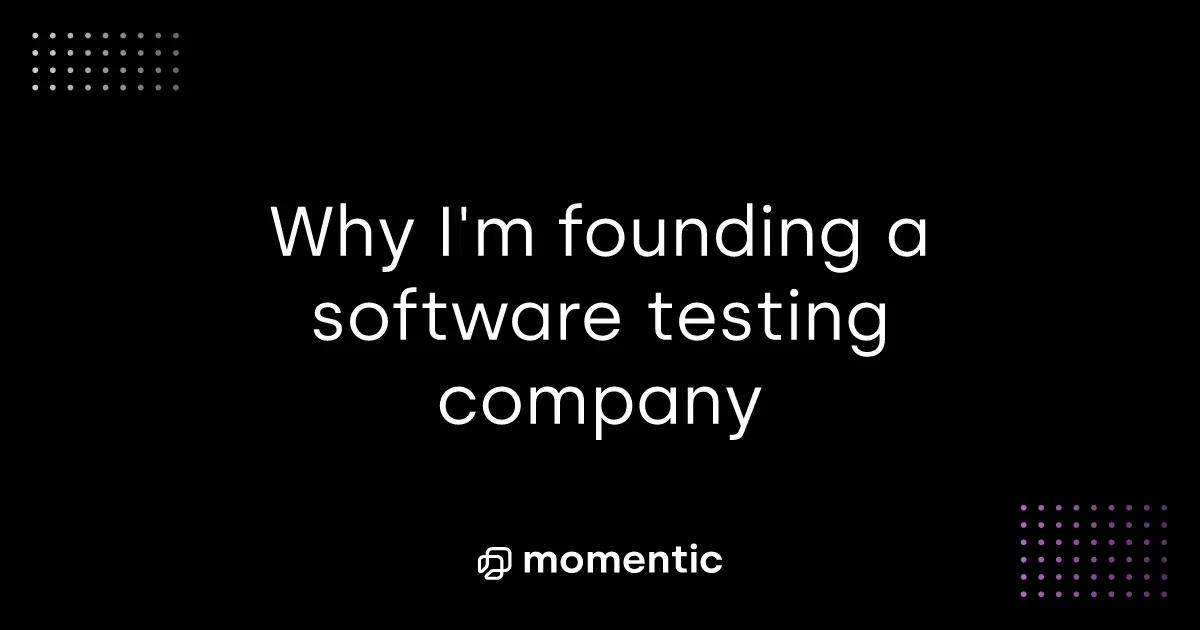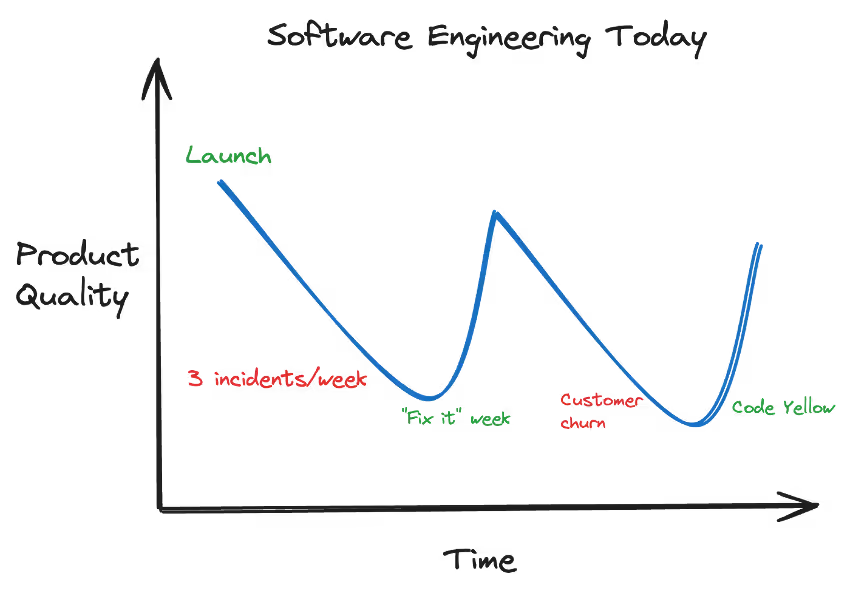Why I'm founding a software testing company
I'm co-founding Momentic, an AI browser automation platform, to remove the opportunity cost of testing in the software industry! ??


For most engineers, testing is a hated chore. A necessary evil that inevitably comes at the cost of productivity. So naturally, you might wonder why I recently quit a stimulating and well-paying job at Retool to cofound Momentic, an AI software testing company.
To be frank, there were many emotional reasons behind this decision - I've always dreamt of the freedom of working for myself, enjoyed wearing multiple hats at once, and itched to prove myself in the startup world. But, in a way, the lessons I've learned from my engineering career logically led me to this step as well.
At my first full-time job out of college, I grinded hard to prove that I could be a capable software engineer. My code flew into production at breakneck pace, and I thought climbing the corporate ladder would be relatively simple.
I recall my first performance evaluation distinctly. My engineering manager told me: "Jeff, you're doing great. But to truly scale your impact, you have to learn to be a force multiplier for others. You aren't going to level through your individual contributions alone."
It was a wake-up call to me: an crucial reminder that, as my context and scope grew, I needed to reduce the hours I spent on writing code and increase the amount of time dedicated to up-leveling others. Over the next couple of years, aided by an unexpected transition to a tech lead role, I learned the value of implementing things that weren't built in an IDE: healthy KTLO tracking, fast feedback cycles, data-driven culture, etc.
So how does this all relate to testing?
Testing improvements have been some of the most force-multiplying pieces of workI've worked on over my career. At Robinhood, my team built and maintained an integration testing platform used by every engineer at the company. We prevented countless incidents, enabled cross-team collaboration, and served as the backbone of product quality for the whole company.
At the same time, testing is usually one of the most underinvested and siloed areas at software companies, particularly those that are scaling quickly. At Retool, it took customer churn, 2-hour P95 build times, and widespread engineering dissatisfaction before a tag-team dedicated to shoring up testing was assembled.

The problem, I realized, is a misalignment of incentives. Engineers and managers will always be judged, first and foremost, on the features and projects they deliver, either directly or indirectly. On a performance evaluation, "new" is almost always easier to sell than "stable".
And testing, however important for customer success and KTLO reduction, can only detract from shipping new things in the short term. It takes an insane amount of time today to write and maintain e2e test cases, not to mention the infrastructure setup necessary to run them regularly.
But what if that didn't have the case? What if testing could actually accelerate engineers?
This, at its essence, is the core vision of Momentic: A platform that increases both developer velocity and product quality at every stage of the SDLC, from local environments to production. (How? In essence, using AI to automate high-level user flows in the browser).

Imagine a world where developers/QAs/SDETs didn't have to rely on manual clicking, where "feature-complete" automatically equalled "100% coverage". A world where there was no opportunity cost for high product quality. How much fewer incidents, code yellows, and customer bug reports would there be in that world?
So, building at Retool has been amazingly fun, eye-opening, and impactful. But now I'm excited to be the best force-multiplier I can be - building that world at Momentic.
P.S. If you're interested in trying out our product, get a demo!


